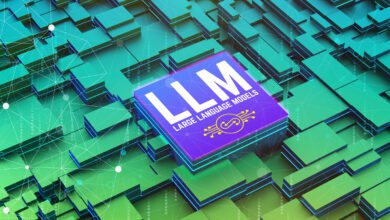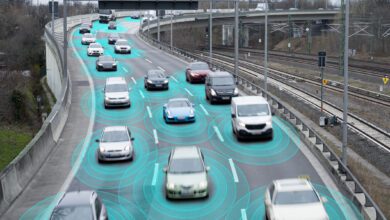
Artificial intelligence (AI) technology has been around for decades, but only recently, high demand for AI professionals has taken the tech industry by storm at large enterprises to startups.
This recent surge in demand for AI professionals is being driven by advances in ubiquitous computing, low-cost cloud services, new algorithms, data analytics and other technologies, Chung-Sheng Li, managing director of artificial intelligence R&D at IT professional services company Accenture, told IEEE-USA InSight in an interview.
“Traditionally, AI included formal logic and logic programming related areas. In recent years, many additional areas have been included in this discipline, making it a more expansive field. The success of consumer-facing user interfaces like Apple’s Siri, or Amazon’s Alexa, along with autonomous vehicles, have contributed to the growing awareness of AI,” said Li, an IEEE Fellow.
Indeed. Matt Walker, the lead recruiter for robotics, hardware and software for RockIT Recruiting, told IEEE-USA InSight that previously AI was largely used in video games and for simulations. But in the past few years, it has been mentioned in conjunction with a wide swath of various applications.
“Now, people say AI or machine learning all the time and, again like Big Data, it may be a bit of a stretch in some usages, [but] this changes over time and will be more and more prevalent,” Walker said.
AI Salaries
While it is not unusual for tech workers to pull in a $100,000 annual salary, the paycheck for an AI professional can reach upwards of three to five times that amount, or more, Walker said.
“I’ve heard insane salaries from the top people here. In startups, I’d say the best AI workers would come in slightly above senior software engineers with similar experience. From the behemoth companies, and for the top people in the field, I’ve heard salaries in the $300,000 to $500,000+ range, but haven’t seen anything that crazy from startups,” said Walker.
Best AI Opportunities
IBM, Google, Amazon and Microsoft are collectively looking to hire hundreds of AI professionals. Amazon, for example, is currently seeking 109 tech professionals with ideally some AI experience. IBM has 70 such positions, while Microsoft has 347 positions that reference artificial intelligence in the job search.
But the career opportunities are not always that clear cut. AI touches a number of industries, from healthcare to finance and even entertainment, such as IBM’s famous Jeopardy challenge game featuring Watson, a cognitive cloud platform.
With such a wide swath of industries and opportunities, AI professionals and recruiters point to these particular areas as having the greatest demand for AI tech professionals.
The most popular roles are researcher, software developer, data mining analytical professional and machine learning applications experts, Obed Louissaint, IBM vice president of people and culture, told IEEE-USA InSight in an interview.
“These particular roles show the impact AI is having ” it’s challenging and ever changing, combines research, programming, theoretical thinking and even elements of philosophy, [such as], the why’s, the what if’s,” Louissaint said. “Consider this, AI is moving in a multitude of directions ” helicopters and cars that can drive themselves, algorithims that can recognize faces and a supercomputer that wins a gameshow and impacts the field of medical information ” all at the same time.”
Accenture’s Li noted that since AI feeds off of data, content and data curators, data scientists and analytics experts are also crucial for the following two main reasons: First, many large enterprises across all industries realize that AI is an essential part of driving business transformation and innovation across industries and, second, there’s been an explosion of new companies aggressively pursuing AI-driven products and services.
And on top of that, U.S. startups focusing on artificial intelligence have increased by 20-fold in the past four years, Li observed. Walker is also seeing AI startups pop up all over the IT landscape.
Walker cautioned, however, AI may eventually lead to eliminating IT job opportunities, as well as creating them. AI, he reasoned, may one day lead to eliminating many mid- to junior engineering roles that are currently held by humans.
“When computers can replicate and produce code faster, cleaner and better than humans, at that point, it would be good to be one of the people who could “tame” or “control” the AI,” he said.
Skills Needed to Snare an AI Job
Specific skill sets are needed around the constellation of technologies that make up AI, advised Li, pointing to robotics, computer vision, speech recognition, natural language processing, knowledge representation and reasoning, virtual and augmented reality, machine learning, deep learning, expert systems, biometrics and video analytics in general. It’s these skills that are required for developing autonomous vehicles, intelligent agents and assistants, such as Amazon’s Alexa and IPSoft’s Amelia, as well as AI platforms and various AI-based solutions, he added.
IBM’s Louissaint cited such skills as project management, data analysis, quantum and classical physics, and even biology, which could help to understand how the human brain works, and philosophy for addressing the why’s and what if’s, as important skills to possess. But it is passion that is the most important skill any IT worker could have, because it’s the foundation for challenging one’s self every day, Louissaint reasoned.
Advanced IT degrees are also coveted too, noted Walker. “I’ve seen companies pulling people out of their Ph.D. programs to get them before it’s too competitive,” the recruiter said. “Google, Facebook, Apple and the big companies out here routinely are doing this.”
Career Pivot to AI
Making a transition from one IT role into AI is often harder than it seems, Walker observed. Although systems level and hardcore engineers are starting to use machine learning in their software development roles, it is often data engineers and data scientists who are the ones who mainly make the transition to AI roles.
“The best chance I’ve seen for people to get close to AI is to do their IT role in a company that is specializing and utilizing AI, so that you can work closely to it. Think dev ops at a company that’s building out an AI driven sales and marketing platform. They would still be working within the framework that they did in their last role, but now the other engineers in the company would be working on advanced AI research and implementation,” Walker said.
Li, however, had a different perspective on which IT professionals are most likely to succeed if they realign their careers toward AI. IT workers who focus on content and knowledge curation and analytics can easily transition to AI-focused projects, said Li. Going forward, large amounts of data and knowledge needs to be captured digitally and curated, in order for machine learning algorithms to learn. “Curation is likely to be a big area that will require human resources,” he observed.
Launch an AI Career from College
Holding a masters or doctorate degree, after receiving an undergraduate degree in computer science, math or engineering, is likely to lead to an AI position. “Almost every candidate we’ve found for AI companies has come from a start in high level academia,” said Walker.
Li weighed in that in addition to taking courses in natural language processing, analytics, machine learning and machine reasoning, college students should also take business-related classes to help them understand how to apply technology within the context of an organization’s needs.
Surprisingly, courses in liberal arts, such as history, philosophy, political science and sociology, may also be worthwhile in steering a student’s career toward AI. Said Louissaint: “You never know where today’s AI application will come from ” having a broad exposure to a wide variety of subjects makes you a more well-rounded potential candidate.”






